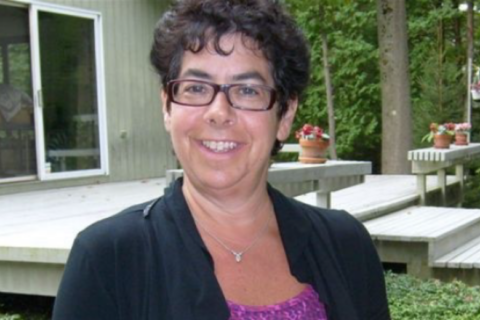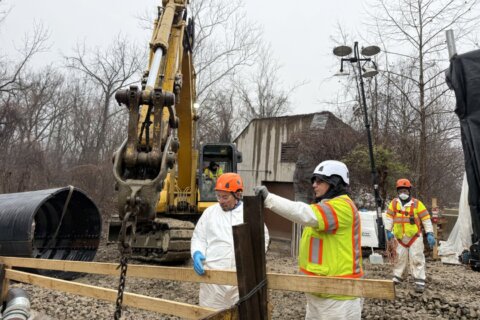Montgomery County Public Schools, Maryland’s largest school system, will add hundreds of electric bus school buses to its fleet, and will become the biggest operator of electric school buses in the U.S., with the goal of going all electric in 14 years.
Under a contract approved by the Montgomery County Board of Education Tuesday, Montgomery County Public Schools will introduce over 300 electric vehicles to its fleet of school buses in the coming years.
The goal, county leaders said, is for the school system’s current fleet of school buses — which boasts more than 1,400 vehicles — to go completely electric by the year 2035.
“The effort to increase the electrification of our school bus fleet has been a topic of conversation for quite some time,” said associate superintendent for operations Essie McGuire.
Advanced Energy Economy, a national association of businesses that advocates for clean energy use, applauded the county for its decision and called it the largest contract of its kind “in the nation by a municipality.”
“This leadership step taken by Montgomery County Public Schools shows that it is possible today to electrify transportation at scale,” said Nat Kreamer, CEO of Advanced Energy Economy.
According to the $1.3 million annual contract, the school system will be able to pay a fee each year to lease the buses from Highland Electric Transportation, a Massachusetts-based company that will own and maintain them.
The contract includes an initial “four-year term” but the county would be able to extend that “through complete fleet electrification.”
MCPS, which has more than 160,500 students, will start with 25 electric buses hitting county roads this fall, followed by 61 buses next year and 120 in each of the two subsequent years.
“The school bus industry is moving in the direction of electric buses,” said Todd Watkins, transportation director for Montgomery County Public Schools. “This is something that appears like it’s going to sweep over the industry like no other innovation ever has.”
In lobbying for the contract, Watkins noted that the whole school system uses 17,000 gallons of diesel fuel on a typical school day for its buses. MCPS buses travel almost 20 million miles a year, taking students to and from school and to school activities in the sprawling county that spans 497 square miles.
“They’re much cleaner than they used to be, but they still emit greenhouse gases,” Watkins said of the current buses. “Electric school buses have no tailpipe emissions — in fact, they don’t even have a tail pipe.”
According to a memo Superintendent Jack R. Smith sent to the board, MCPS will be “responsible for vehicle liability insurance, tags, any damage MCPS causes to the buses, and additional vehicle safety features to be added as they become available. Budget neutrality depends on achieving all of the savings associated with not using the equivalent number of diesel buses.”
The buses will be built in the U.S. but Thomas Built. Thomas Built is a North Carolina subsidiary of Daimler Benz. The bus batteries, made by Proterra out of California, can recharge in three hours.
“We are thrilled to serve MCPS and make vehicle fleet electrification simple for the customer, as we deal with the many details — from procuring the electric buses, setting up charging systems, and training MCPS drivers and service staff — so they can focus on safely transporting students and reducing pollution in their community,” said Duncan McIntyre, CEO of Highland Electric Transportation.
“Our unique approach ensures the buses are charged and ready to cover their routes, recharged at optimum times, and available to offer grid reliability services through the local utility. It’s truly a win-win-win for all,” McIntyre said.
Nationwide, there are about 300 electric school buses in operation.
WTOP’s Colleen Kelleher contributed to this story.








